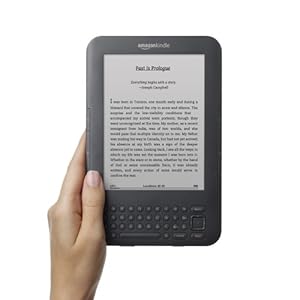 Image via Wikipedia
Image via Wikipediaby Dan Seitz
Self-publishing has always been a tricky business, but over the last decade, the business has changed substantially. Authors no longer need to get their words on paper to get them bought and read. The popularity of both ebooks and tablet computers, especially the iPad 2, means that there are millions of potential customers for a wide variety of audiences. But while the rewards are great, there are still drawbacks to self-publishing that need to be considered before taking the plunge.
For example, in self-publishing, you have total control, which is a double-edged sword. On the one hand, you can write deliberately for niches that larger publishing houses simply can't or won't pursue, and it puts you in direct contact with your audience, letting you collect feedback and engage with them on a level publishing houses can't touch. And, of course, you have creative control: you won't be told to soften a character or a plotline for the larger market, or asked to imitate another author.
However, with total control comes total responsibility: all the operational tasks that a publishing house normally handles will instead be your job. Marketing, for example, will take up an incredible amount of your time: publishing houses have entire marketing teams dedicated to getting the word out to as many people as possible. Self-publishing means it'll just be you, and you'll be paying for any marketing expenses.
Speaking of costs, everything to get your book to market will have to be paid for by you. You'll need to pay for editing, layout, publishing costs, website costs...the list can seemingly go on and on. While upfront costs are much lower than before thanks to print-on-demand services and digital distribution, you can still be looking at a substantial outlay.
Fortunately, those costs are balanced by the fact that you get far more money. Your average hardback sale of $27 nets the author a royalty of...$3. The other $24 goes to the publishing house; as you can see, even if you choose to price your book cheaply, you still have far more profit potential than even some of the biggest bestselling names in publishing.
That said, self-publishing still carries the stigma of amateurism. Many people find it questionable that you're self-publishing your book; they wonder what was wrong with it that you couldn't get somebody else to put it out in print. Part of this is simply that some self-published projects really are just monuments to the author's ego instead of books that somebody might actually be interested in reading. This can make it difficult to get a self-published book the same level of publicity, especially from book critics, who often will ignore self-published book completely unless they're working in a specific niche.
Another part is that self-published books aren't edited to the fine polish that books from a publishing house are...but that's only because of a lack of editors. Contrary to popular belief, good, experienced editors are not the province of the publishing houses exclusively; they can be hired for their services like anyone else. An investment in an editor who has worked in the area of your book can go a long way towards improving your book and, more importantly, your book's sales.
Self-publishing is cheaper, easier and more popular than ever before, and if you have a book you want total control of, or want to write for a niche market, it's definitely a choice worth pursuing.
Dan Seitz is a freelance writer who covers an array of topics, from technology to home improvement topics such as gutters.




